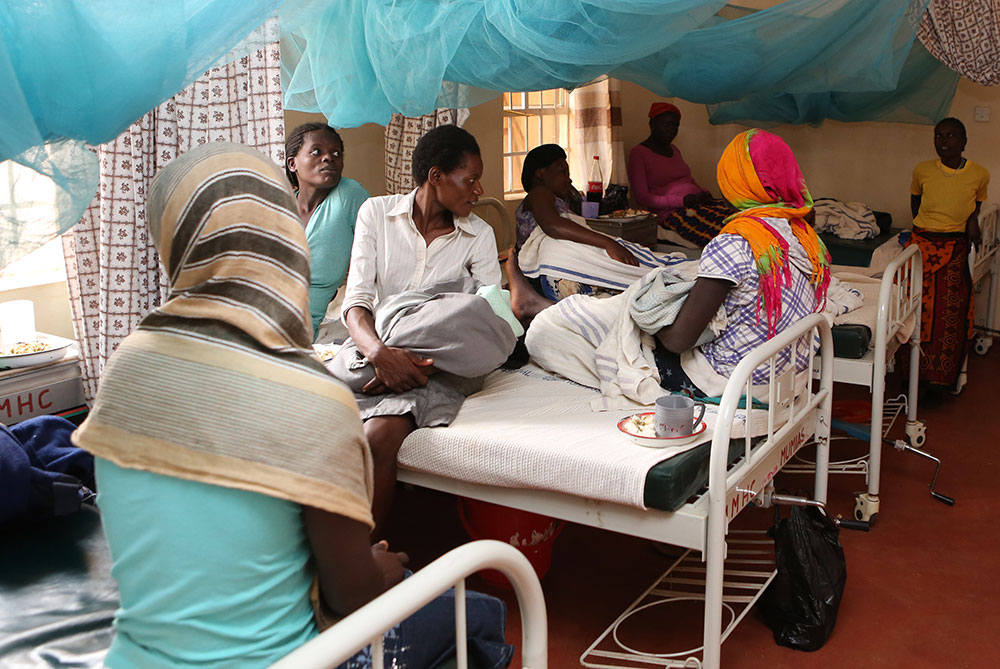UN says 260,000 women died at childbirth in 2023 despite advances in healthcare

The report highlights the stark regional disparities in maternal mortality rates, noting that while sub-Saharan Africa has made significant progress, it still accounts for approximately 70 percent of global maternal deaths.
Despite major progress in global healthcare, 2023 saw a devastating statistic concerning women.
A UN report released on World Health Day 2025 reveals a stark reality: 260,000 women lost their lives in 2023 due to complications related to pregnancy or childbirth.
More To Read
- New study reveals why young mothers in Kenya are at higher risk of preterm births
- Ngaremara mothers rely on goat and cow blood to prevent postpartum haemorrhage
- Scars, blood and silence: The human cost of childbirth in Kenya’s forgotten regions
- Birth control in Africa: Study tracks the use of long-acting contraception in 26 countries
- Delivering in fear: The untold impact of disrespect in childbirth
- The harsh reality of maternity leave, breastfeeding challenges for Kenya’s informal workers
This translates to a devastating reality: one maternal death every two minutes despite the progress made in expanding access to essential health services.
For many women, pregnancy remains a dangerous gamble, with their lives hanging by a thread, particularly in unstable regions ravaged by conflict and poverty.
While some strides have been made, the relentless tide of preventable deaths serves as a stark reminder of the fragile nature of progress in maternal healthcare.
In particular, the report dubbed “Trends in Maternal Mortality”, stressed the devastating impact of ongoing humanitarian funding cuts, which have led to the closure of health facilities, loss of skilled health workers, and disruptions in supply chains for critical medical supplies, including those for treating haemorrhage, pre-eclampsia, and malaria.
These disruptions have disproportionately affected vulnerable populations, particularly those in conflict-affected and fragile settings, where maternal health services were already limited.
“While this report shows glimmers of hope, the data also highlights how dangerous pregnancy still is in much of the world today despite the fact that solutions exist to prevent and treat the complications that cause the vast majority of maternal deaths,” said Dr Tedros Adhanom Ghebreyesus, Director-General of the World Health Organisation (WHO).
He emphasised the need to prioritise maternal care and the reproductive rights of women and girls to ensure healthier outcomes during pregnancy and beyond.
The Covid-19 pandemic further compounded the challenges, with an additional 40,000 maternal deaths in 2021 alone, partly due to the interruption of routine maternity services.
This uptick in deaths was linked to both direct Covid-19 complications and the broader disruption of healthcare systems that pregnant women depend on for both routine and emergency care.
The data indicates that maintaining access to maternity services, even in the face of global crises, is critical for safeguarding maternal health.
"When a mother dies in pregnancy or childbirth, her baby’s life is also at risk. Too often, both are lost to causes we know how to prevent,” said UNICEF Executive Director Catherine Russell.
“Global funding cuts to health services are putting more pregnant women at risk, especially in the most fragile settings, by limiting their access to essential care during pregnancy and the support they need when giving birth,” she added.
The report also highlights the stark regional disparities in maternal mortality rates, noting that while sub-Saharan Africa has made significant progress, it still accounts for approximately 70 percent of global maternal deaths.
In countries like Chad, the Central African Republic, and Somalia, maternal death rates remain alarmingly high, driven by ongoing conflicts, extreme poverty, and under-resourced healthcare systems.
These regions face a unique set of challenges, with pregnant women in conflict zones exposed to risks far greater than those in more stable countries.
The report stresses the need to address these inequities by strengthening healthcare infrastructure, ensuring the availability of skilled birth attendants, and enhancing the supply of essential medicines and equipment.
Dr Natalia Kanem, UNFPA’s Executive Director, emphasised the importance of building well-resourced health systems that can sustain and expand maternal health services.
"Access to quality maternal health services is a right, not a privilege. We can and must end the tragedy of preventable maternal deaths and their enormous toll on families and societies,” she said.
The report also sheds light on the need for comprehensive efforts to improve women’s overall health beyond pregnancy, including expanding access to family planning services, addressing non-communicable diseases like anaemia and malaria, and ensuring girls stay in school to protect their long-term health prospects.
These efforts, along with strengthening maternal health systems, can significantly reduce maternal mortality rates and improve outcomes for mothers and their children.
Urgent investment is needed to prevent further setbacks in the fight against maternal deaths.
The report warns that the world is off-track to meet the UN’s Sustainable Development Goal target of reducing maternal mortality by 2030.
The global maternal mortality ratio would need to fall by around 15 per cent each year to reach the target, a sharp increase from the current annual rates of decline of around 1.5 per cent.
The UN agencies urge global leaders and policymakers to prioritise maternal health and increase funding for maternal, newborn, and child health programmes, especially in conflict zones and other fragile settings. Without such action, the gains made over the past two decades may be lost, with devastating consequences for mothers, babies, and communities worldwide.
Top Stories Today










































